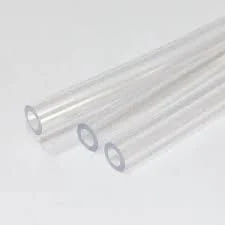ડીસેમ્બર . 12, 2024 21:19 Back to list
High-Density Polyethylene Pipes for Agricultural Applications and Benefits
Understanding HDPE Agriculture Pipes Benefits and Applications
High-Density Polyethylene (HDPE) pipes have emerged as a revolutionary solution in the agricultural sector, providing farmers and agricultural businesses with efficient and reliable options for irrigation and water management. These pipes, made from high-density polyethylene plastic, offer numerous advantages over traditional materials like metal and PVC, making them an ideal choice for modern agriculture.
Advantages of HDPE Pipes in Agriculture
One of the primary benefits of HDPE pipes is their durability. Unlike metal pipes, which can corrode over time, or PVC, which can become brittle with age, HDPE pipes are resistant to a wide range of chemicals and environmental stresses. This longevity ensures that farmers can rely on HDPE pipes for many years, decreasing the need for frequent replacements and reducing overall maintenance costs.
Another significant advantage of HDPE pipes is their flexibility. These pipes are lightweight and can be easily transported and installed, even in challenging terrains. The flexibility of HDPE allows for easier handling and installation, as it can be bent to fit various configurations without the need for special tools or equipment. This adaptability makes HDPE pipes suitable for a variety of irrigation systems, including drip irrigation, which is increasingly favored in modern agriculture.
HDPE pipes also exhibit excellent hydraulic characteristics. Their smooth inner surfaces minimize friction loss, allowing water to flow freely and efficiently throughout the irrigation system. This efficiency promotes better distribution of water, ensuring that crops receive the necessary hydration without wastage. As water scarcity becomes a pressing issue in many agricultural areas, the effectiveness of HDPE pipes in conserving water resources is invaluable.
Environmental Impact
The environmental benefits of using HDPE pipes in agriculture cannot be overlooked. These pipes are recyclable, helping to reduce plastic waste in landfills. Furthermore, the production of HDPE is more energy-efficient compared to other materials, resulting in a lower carbon footprint. Farmers opting for HDPE pipes contribute to more sustainable agricultural practices, aligning with global efforts to foster environmental stewardship.
Installation and Maintenance
hdpe agriculture pipe

Installing HDPE pipes is relatively straightforward compared to traditional piping materials. They can be fusion welded together, creating a seamless connection that reduces the risk of leaks and enhances system integrity. Many farmers find that they can perform the installation themselves, further saving on labor costs.
When it comes to maintenance, HDPE pipes require minimal intervention. Due to their resistance to corrosion and scaling, they are less likely to require routine cleaning or replacement. This low-maintenance characteristic allows farmers to focus on their crops rather than worrying about their irrigation systems.
Applications in Agriculture
HDPE pipes are versatile and can be used in various agricultural applications, from irrigation to drainage systems. One prominent application is in drip irrigation systems, where precision is critical. HDPE pipes can deliver water directly to plant roots, reducing water usage and improving crop yield. This method of watering is particularly beneficial in areas where water is scarce.
Moreover, HDPE pipes find utility in large-scale agricultural operations for transporting water from sources like rivers or reservoirs to fields. They can also be employed in sub-surface drainage systems, helping to manage excess water efficiently and preventing waterlogging, which can impede crop growth.
In recent years, the adoption of HDPE pipes has grown as farmers become more aware of their benefits. As agriculture continues to evolve with advancements in technology and sustainability efforts, HDPE pipes stand out as a practical and effective solution for modern irrigation challenges.
Conclusion
HDPE agriculture pipes represent a significant advancement in irrigation technology, offering a combination of durability, flexibility, efficiency, and environmental benefits. As farmers face the dual challenges of increasing food production and conserving precious water resources, HDPE pipes are likely to become an integral part of sustainable agricultural practices. With their ability to enhance irrigation effectiveness and reduce maintenance costs, it's clear that the future of agricultural irrigation may very well be rooted in HDPE technology.
-
HDPE Natural Sheet: Durable, Food-Grade & Versatile Plastic Solutions
NewsAug.27,2025
-
Durable Glossy PVC Rigid Sheet | Premium High-Shine Panels
NewsAug.26,2025
-
Durable PP Rigid Sheet: Lightweight, Chemical Resistant Solutions
NewsAug.21,2025
-
PVC Grey Sheet for Extraction: Chemical Resistant & Durable
NewsAug.19,2025
-
Durable PVC Pipe Fittings for Plumbing & Irrigation Needs
NewsAug.18,2025
-
HDPE Steel Belt Reinforced Spiral Corrugated Pipe | High Strength
NewsAug.17,2025

